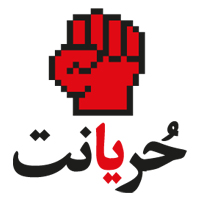Jordan is slipping into a black hole, with new restrictions on Internet freedom being approved by the government today [August 22, 2012]. First, the government gave the go ahead to block websites. Now, a new Publications Law, which allows for more control and censorship over the Internet, has also been approved as a draft.
According to Al Ghad newspaper [ar], the Jordanian government approved amendments to the Publications and Press Law, which now require the owners of websites to register with the government and obtain a license, “just like any other publication.” Owners of websites will also be made responsible for the content of comments published by readers on their sites.
The draft law will now have to be approved by Parliament to become an actual law.
Jordanian blogger Moey shares a series of videos protesting recent moves to censor the Internet in his country.
Moey's post is entitled Say No and the body of the post reads:
Not writing a single word, watch and judge!
Here are the videos:
This is ‘censored Moey':
Here's ‘censored Sarah':
And this is Omar, after he has been censored:
On Facebook, Jordan's former ICT Minister Marwan Juma addresses a letter to the Jordanian government. In it he says:
I have an obligation to speak up! Not because I ran the first company that brought email to jordan, or was one the founders of Jordan’s REACH initiative, and not because I recently served as Minister of ICT, but because what is taking place in our sector, namely the attempt to censor the Internet, is simply wrong if not bone-headed!
Among the reasons he gives for his refusal of censorship are:
1. It doesn’t work!
Countries who tried to block sites failed and failed miserably! It costs millions and simply doesn’t work!
Juma adds:
2. There are laws in place already!
There is a cybercrime law in Jordan that specifically addresses the issue of promoting pornography to minors with stiff penalties and jail terms! And this is the real threat here and it already has been addressed. So why complicate matters now?
And continues:
3. Where do we draw the line?
First it starts with porn and then it could evolve to other sites or issues that are deemed offensive! We are opening a pandora’s box here that will be impossible to close. And if we block sites do we want to block email that contains adult images and videos? Or block satellite TV that contains nudity? Where do we draw the line here?
He concludes:
Let us keep the Internet open and free and maintain Jordan's position as a vanguard in the IT industry and protect our image as a country of openness and tolerance.
Check out the link above for the rest of Juma's arguments.

7or ya net: Jordanian netizens are encouraged to use this image as their profile picture in social media to protest against Internet censorship
Also, a new blog named 7or ya net (You are free, Internet) [ar] has been launched to protest against the government's attempt to censor the Internet and spread awareness about filtering and freedom of speech.
In its latest post [ar], the site says:







7 comments
As my knowledge the Jordanian constitution protect the speech freedom ,expression freedom ,press freedom so whenever any restriction it will be violated the Constitution , which means (censorship should be not existing according to press and speech freedom concept )
I feel like I live in Islamic state and the Jordanian government is brotherhood Muslims and they want to correct the Muslims path for applying the fully Islamic laws
If the jordanian goverment is really worry about the people from porno sites over the Internet ,my suggesting for the goverment is to confiscate all satellites from peopl’s homes which is most of them has porno Chanels
Instead of making political and economical reforms they are trying to zip peopl’s mouths
One thing I gusse the Jordanian government friad of is the social activities through the Internet so if the law has been passed then we are getting back to military rules and emergency laws